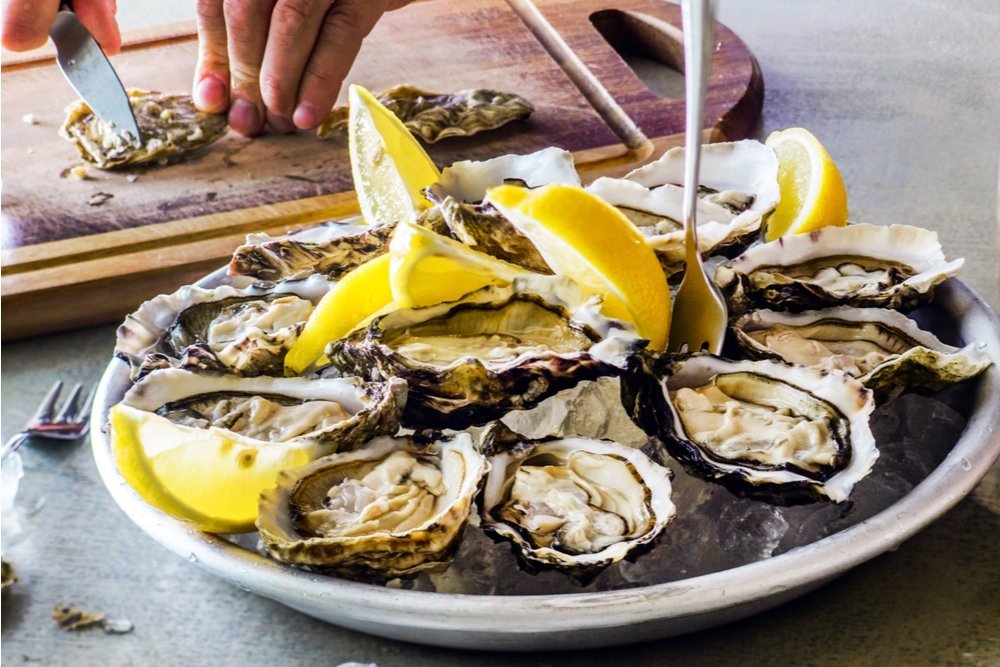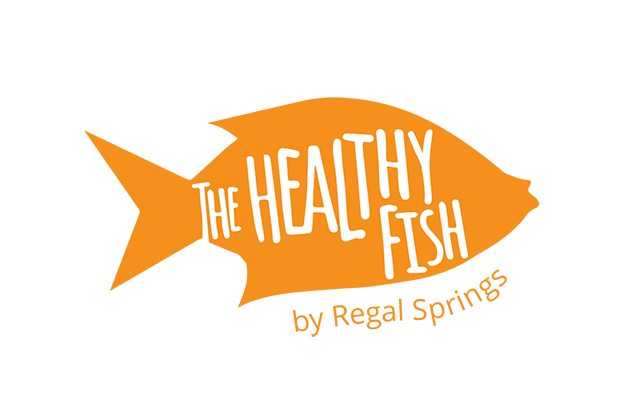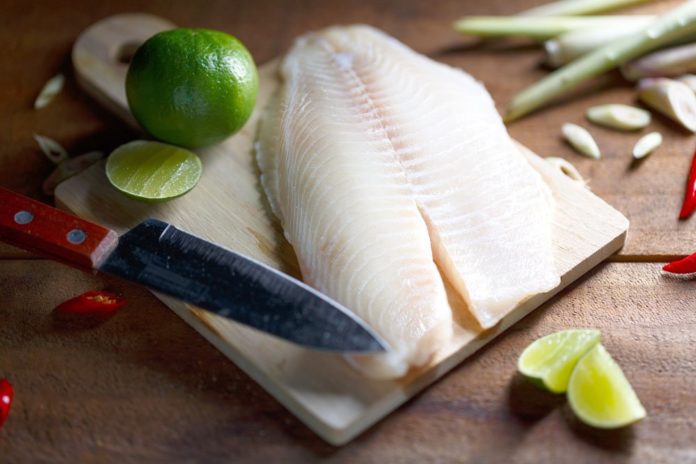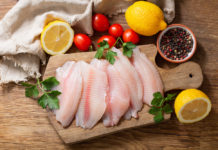Although we are huge proponents of aquaculture, not all farmed fish species are created equal. In some cases, fish farms operate irresponsibly, with their unethical practices, which taints the whole aquaculture industry with a bad reputation. But for each poor example contaminating the industry, there is another responsible farm doing its part to make responsibly-raised fish and seafood the best choice for sustainably-minded shoppers.
One way to ensure the seafood you’re purchasing was responsibly and ethically raised is simply to ask a few pointed questions. Any fishmonger worth his or her salt will be able to provide you with insights into the origin the fish you’re buying, but if in doubt, it pays to keep an eye out for a few choice labels. However, to help you streamline the process, we have also compiled this handy guide to help you sort the good seafood options from the bad.
5 Seafood Choices to Try

Tilapia
Here at The Healthy Fish, we aren’t shy about singing the praises of this freshwater fish, but it’s for good reasons. Responsibly raised Tilapia is a wonderful source of protein, B vitamins and antioxidants, and is very low in calories. They also live on a vegetarian diet, which is simultaneously better for the fish quality and less taxing on the environment.
Rainbow Trout
Rainbow trout naturally spend their whole lives in freshwater, which makes them an easy option to farm in closed circuit systems. Using this process, rainbow trout can easily be kept separate from outside influences and environmental variables, ensuring they run no risk of contaminating wild ocean populations. They also have been shown to respond well to a diet containing alternative proteins like soybean, which allows them to thrive off a strictly regulated vegetarian diet.
Oysters

Oysters are another ideal candidate for aquaculture. Today, 95% of the world’s oysters are farmed, with these mollusks well-suited to farm environments due to their inability to escape and breed with wild oyster stocks. Oysters also naturally act like small filters, allowing them to actually help improve the water quality in the ecosystem in which they’re raised.
Catfish

Catfish has a bit of a bad reputation, but that’s on account of 90% of the catfish imported to the U.S. coming from places that use unregulated antibiotics to grow their fish. However, responsibly farmed catfish is actually a great choice, as they are rich in amino acids and vitamin B12. This low-maintenance fish also thrives on vegetarian feed, making it easy and inexpensive to farm responsibly.
3 Seafood Choices to Avoid
There are, unfortunately, quite a few different seafood options on the market today that consumers would be better off avoiding. Owing to poor farming methods or irresponsible fishing practices, these three common seafood choices are best left off your shopping list.

Wild-Caught Bluefin Tuna
Overfishing of the once-plentiful bluefin tuna has left the species on the brink of extinction. In fact, the World Wildlife Fund has even put bluefin on its endangered species list. This alone would be a good enough reason to avoid purchasing this fish, but bluefin also has a high level of mercury that makes it unsafe to consume.
Farmed Shrimp
Farmed shrimp have a tendency to be bad for both the environment and the consumer. Not only are farmed shrimp generally far more contaminated than their wild counterparts, but shrimp farming around the world has led to water pollution and the destruction of local mangrove forests. Add in the close connection between the shrimping industry and modern slave labor, and it’s best to rethink that shrimp purchase.
Farmed Atlantic Salmon

To paraphrase an old saying: there’s more than one way to farm salmon. In fact, Seafood Watch has recognized 66 different salmon choices on the market, with eight of them classed as “Best Choice” and 15 as “Avoid”. There’s clearly a large variety of farmed salmon options available, so consumers need to take care to look out for salmon bearing one of these labels to ensure they’re choosing a product that was farmed responsibly and ethically.
Many farmed fish species are the most responsible choices on the market, but it’s important to do your homework before jumping to conclusions. Stick to the species on this list, and when in doubt, always keep an eye out for the ASC or Ocean Wise label. Making smarter choices in the grocery store will not only benefit your health, but it will also do wonders for the environment too.
Discover more about the most responsibly farmed fish to help you make the best seafood decisions.
Photo Credits: Alphonsine Sabine / Shutterstock Inc., JM Travel Photography / Shutterstock Inc., Shebeko / Shutterstock Inc, corgarashu / Shutterstock Inc., Guido Montaldo / Shutterstock Inc., Andrey Burstein / Shutterstock Inc.






